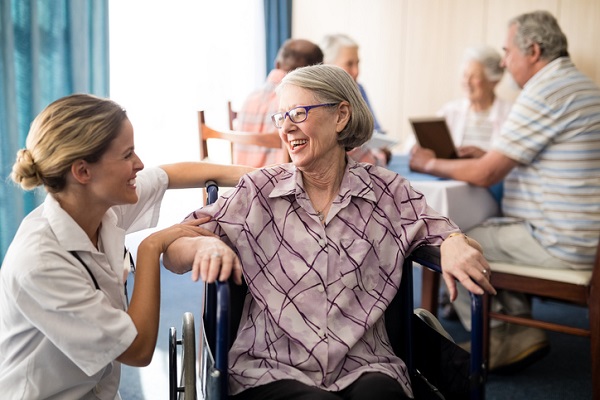
Communicating effectively is difficult, and even in the best of situations there can be misunderstandings. When Health Care Assistants (HCAs) enter their field, they should be aware of certain challenges they may face when conversing with elderly clients.
Here are some tips to help HCAs make sure their clients feel that they are being heard and understood.
1. Consider Physical and Other Impairments
As we age, we often suffer physical challenges, including the deterioration of our senses. It is normal for those working with the elderly to encounter hearing impairments, and this can be a large obstacle in communication.
Hearing impairment comes in many different forms and intensities. Some of the more common signs to watch include clients keeping the TV at a high level of volume, making frequent requests for you to speak louder, or struggling to follow a conversation with more than two people.
In order to make them feel more comfortable, be sure to keep regular eye contact. Minimize background noise wherever possible, and try to provide context for them by identifying the topic of conversation.
2. Respond Using Skills Taught in Healthcare Assistant College
It is important for students in healthcare assistant college to consider how difficult it must be for some clients to communicate on a day-to-day basis. There are high rates of isolation in the elderly community, and one of the many factors involved can be the fact that they struggle to hold a conversation.

When trying to communicate with a client, draw from your lessons and training exercises. Speak clearly and enunciate words carefully. Focus on one topic at a time to avoid confusion, and keep sentences short and simple, avoiding complicated language.
3. Be Sure to Listen and Be Engaged in Conversation
Listening is vital to communication in any situation. It shows that we are engaged and paying attention in a conversation, and also allows us to understand the other person’s viewpoints and how they are trying to get them across.
Elderly clients can have difficulty in expressing their thoughts and feelings, especially if they feel that no one is paying attention to them. Remember to nod, smile, or ask questions to help them understand that they are being heard.
4. Be Respectful of Your Clients at All Times
Respect is another key factor. We all want to feel as if we are being appreciated and treated fairly, no matter what age we are. Being respectful of a client means treating them with dignity and compassion, as well as patience. It will not always be easy to communicate, but it will help if the client does not feel mistreated or judged.

5. Draw from Your Hands-On Training During HCA School
Apart from administering excellent care, one of the main duties of an HCA is to provide companionship to their client. One of the benefits of spending time in HCA school is that technical lessons are paired with on-site training at residential and community care facilities, guaranteeing students the opportunity to learn through real-world experience. These experiences can provide valuable lessons that will greatly improve your communication approaches with clients.
However, an important lesson to keep in mind is that no two people will act exactly alike, and what works for one person may not work as effectively for another. Caring for a new client may take some trial and error before a solution presents itself.
Do you think you might want to become a healthcare assistant?
Contact Discovery Community College for more information!

